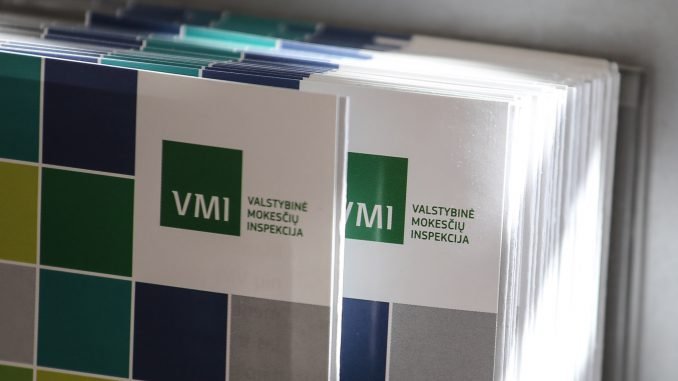
Last week, the Government approved a measure that would allow the VMI to automatically receive certain types of information about residents’ bank accounts. Banks will have to share data about all account holders with turnover of over €15,000 and balances above €5,000 at the end of the year.
When asked whether VMI should have access to account balances and transfer sums, 19% of respondents answered positively and 65% responded negatively.
Those who least minded having their bank accounts checked most often fell into the youngest (up to 25 years) and oldest (older than 55 years) age groups, representing the lowest incomes among those surveyed.
Only 6% of respondents admitted having received illegal untaxed income over the past year. They were more likely to be medium income earners, individuals with lower education levels, men, and rural residents.
However, four times more respondents – 27% – admitted to knowing someone who had received “shadow” income. People with this response tended to be men between 36 and 55 years of age receiving medium incomes and living in regional centres and villages.
The survey was conducted in late January and included 1,004 Lithuanian residents between 18 and 75 years of age.
Sergejus Muravjovas, head of Transparency International Lithuania, said the survey results offer two lessons: “First, the VMI lost the first public discussion on this question and has a lot to do to explain the value and reason for their decision. Second, Lithuania’s residents are becoming more and more critical and do not think that they should blindly trust every decision made by a government institution.”
“From our own surveys we see that the black market in Lithuania is much bigger. The essential question is – when will our politicians begin looking for innovative ways to reduce its size? For example, in many countries, receipt lotteries turn people into tax inspectors of sorts who collect their receipts and encourage others to pay their taxes. Of course, there are other ways to encourage people to pay taxes. I’m waiting to see when our Government will try even one of them,” said Muravjovas.
Žilvinas Šilėnas, president of the Lithuanian Free Market Institute (LLRI), on the other hand, said “you wouldn’t want the tax inspectorate to inspect your home, drawers and closets once a year – even if they wouldn’t find anything suspicious there. Privacy and the presumption of innocence are values that free states value and foster. If the Government and the Seimas won’t react to the people’s opinions and will quietly return to this law, then we can even ask whether the government responds to people’s opinions at all – or if it only listens when it’s advantegeous to do so,” said Šilėnas.
According to him, asking people directly if they receive black market income and expecting honest answer is futile. “In one survey, we asked if people had friends or family members who had recently worked on the black market. The results were similar – 29% of them answered positively. Usually, they are people with employment contracts who receive part of their income in unaccounted cash,” he said.
Šilėnas said that black market employment often involves people who officially receive low wages. In addition to their official minimum wage or even smaller wage (for part-time employment), they get a portion of their wage “in an envelope”, that is, in non-taxed cash.
“This is why, in all the official statistics, we have about a fourth of the population earning the minimum wage. The minimum wage in Lithuania seems even smaller than it actually is,” he said.
Last week, the Government approved a tax administration law according to which financial institutions would automatically provide the VMI with residents’ accounts, their total annual turnover, balances (if their annual turnover is over €15,000 or if the balance is above €5,000), interest, debts, insurance payments, etc.
According to the VMI, about 9% of Lithuanians received income over €15,000 last year.
Only 11% of all account holders – residents and non-residents – had more than €5,000 euros in their bank accounts as of the end of June last year.

Be the first to comment